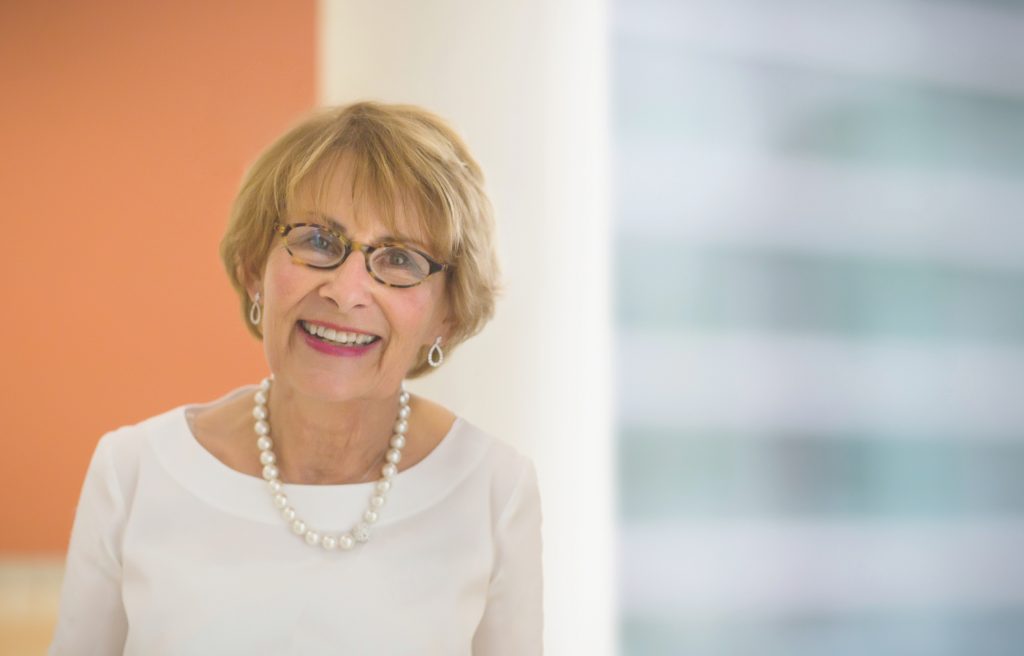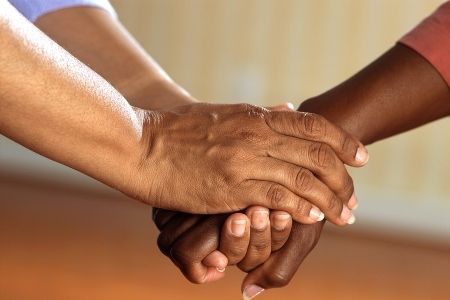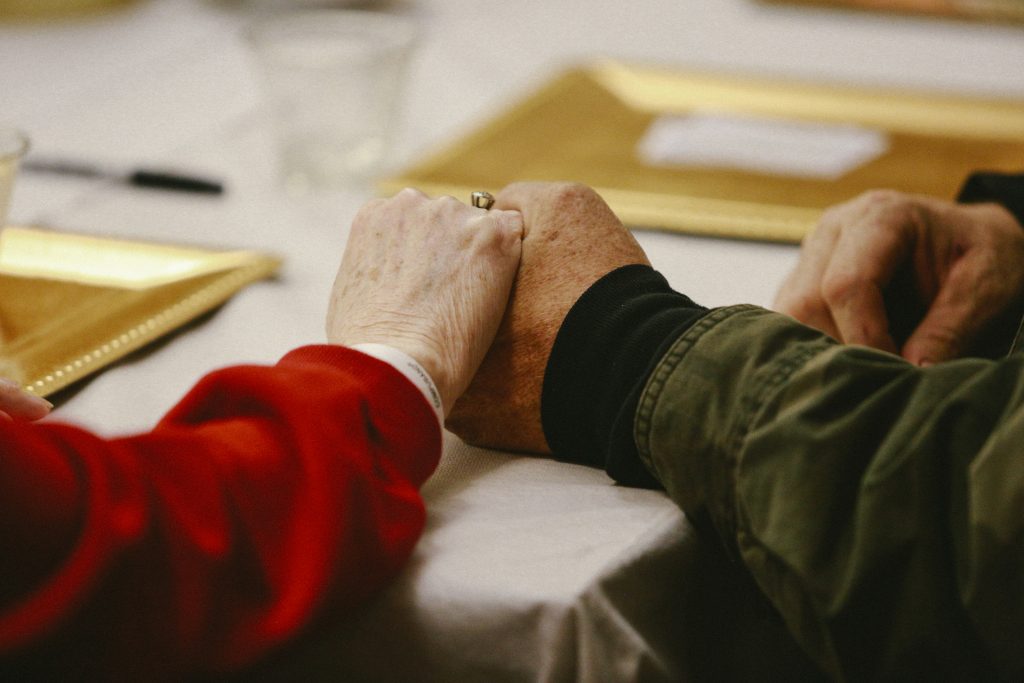A cancer diagnosis can be a tough situation for any patient, but it also can pose challenges for their caregivers. Once a patient leaves the hospital or clinic, care is often entirely in the hands of caregivers and the patients themselves. But with a pandemic wreaking havoc on everyone’s lives, how do we care for the caregiver?

Loretta Muss, coordinator of the Patient and Family Advisory Council at the North Carolina Cancer Hospital, said caregivers are just as vital to the care team as doctors, nurses and anyone involved in medical care, because they are with the patient the majority of the time.
Recognizing the important role caregivers play in a patient’s care, the Patient Family Advisory Council offers training to medical students on how to work with caregivers in clinical settings, acknowledging the important role caregivers play in the treatment and care of cancer. It is often the caregiver administering medications, changing a dressing or even fixing a chest tube when a patient is home.
“This person is going home at the end of the day, and this is the person who will take care of your patient,” Muss said.
This was true for Greensboro, North Carolina, resident Susan Wetzel, whose husband, Barry, was treated for head and neck cancer at the North Carolina Cancer Hospital, the clinical home of UNC Lineberger.
“It’s hard as a caregiver for sure; it’s hard to see him like that,” Wetzel said. “I had to give him shots, twice a day for months. I had lots of duties, and it kept me occupied because I had stuff to do.”
She would make notes on her iPad and bring it to her husband’s appointments, taking down responses to the questions she had for his care team, and they would make sure they addressed her concerns at each visit. Wetzel said it was easier for her to process the impact of her husband’s diagnosis and care when she wrote it down.
Support for cancer caregivers

Muss said patients often only hear about 25% of what a doctor or nurse says to them in a clinical setting. “A caregiver has to hear the other 75%,” she said. “The average age of a caregiver is probably 47, and they are often female. Sandwiched between a family, job, home and taking care of older parents, trying to hold all those balls up in the air is horrific.”
Muss and the UNC Lineberger Comprehensive Cancer Support Program (CCSP) team recognize that caregivers have needs along with the patients, who are often family members. CCSP offers services that cover everything from coping with stress, help with legal documents, nutrition information, exercise and more, and these resources are all available to caregivers.
Knowing that caregivers may also need mental and emotional resources to care for themselves and their family members, the hospital launched Caregiver Conversations. It began as a bimonthly meetup, and then became a weekly occurrence where caregivers can get together and talk openly and honestly about the difficulties they’re facing. Muss said it is more of a “meeting of the minds” than it is a support group.
“We’ve had some challenges, but then there are times when people have finally been able to let their guard down and share, times when caregivers were able to give and get good advice,” she said.

Caregiver burnout and the pandemic
The burden of caregiving burnout and stress is all too real, particularly during the COVID-19 pandemic, Muss said. Loss of connection has been a major factor for everyone during the past year, but caregivers have often lost more than the average person, particularly if the patient is someone they rely on, like a parent or a spouse.
“The isolation of the pandemic and a catastrophic diagnosis can really impact families,” Muss said. “We need to give them the tools and for them not to feel guilty or burdened by something so out of their control.”
With virtual visits now dominating health care, it’s easier than ever to reach out, but sometimes caregivers need someone to check in on them. “We have to be the connection. We have to be the one who picks up the phone and calls,” Muss said.
Muss said simply offering yoga classes or urging someone to take time for themselves is not always enough, and some caregivers need a reminder that there are options available for them.
“Caregivers need to know that if they are stressed, they should check with the patients’ physician for a referral for CCSP services,” Muss said. “If they’re struggling, they need to tell their navigators, they will know where to send them.”
Caregivers can find support and resources through the UNC Lineberger Caregivers website created through a partnership between the UNC Lineberger Comprehensive Cancer Support Program (CCSP) and the UNC Gillings School of Global Public Health to address the unique needs of caregivers during the cancer journey.
